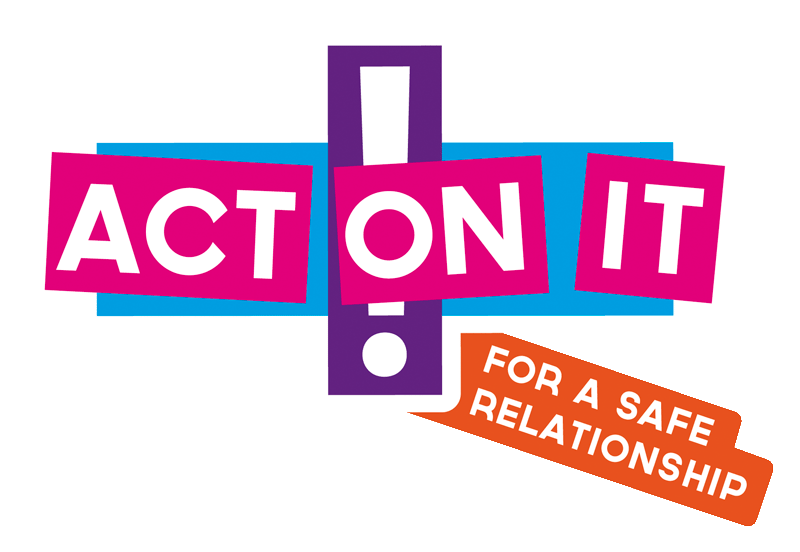
Encouraging open & honest conversation
If you’re going to be the one your teenager turns to when they feel unable to cope with their relationship, you’ll need to encourage open and honest conversation about relationships before problems arise.
That means listening to their words, hearing what they say, validating their concerns and understanding how they feel.
It involves asking questions, listening to answers and making suggestions about how your teenager might take their own steps to make positive changes.
It does not mean arguing, instructing, fighting or issuing ultimatums without prior discussion and mutual agreement.
It does not involve forcing issues that are concerning you before your child is ready to talk. Scroll down to find out more…
Signs from your teen that there might be an issue…
Lots of young people become secretive during their teenage years.
It’s natural. They’re still learning about themselves and some of their experiences can be embarrassing to share with adults (especially parents!)
But if you’re worried that your child’s relationship might be unhealthy or harmful, think about whether their behaviour has changed dramatically since the relationship began.
Some of the warning signs might include…
A sudden, unexplainable fall in achievement in their education
Avoiding school, college or work
Personality change – suddenly becoming withdrawn or quiet
Avoiding their usual friends or staying at home
Mood swings – such as irritability or anger – when asked about themselves or their plans
Making excuses for their boyfriend or girlfriend
Injuries they can’t – or won’t – explain
Using drugs or alcohol
Signs that a partner might be harmful…
Changes in your teen’s behaviour won’t necessarily be the result of a toxic relationship.
After all, there are plenty of single teenagers who will experiment with drugs or alcohol or have sudden mood swings.
So it’s worth thinking about a partner’s behaviour too.
Does your teen’s partner…
Have difficulty controlling their emotions – particularly anger and jealousy?
Become annoyed when they’re not included in your child’s plans – or if your child meets new people?
Monitor your teen’s communications – calls, messages, emails, or social media activity?
Try to persuade your child not to go out or meet friends?
Blame others for their own problems or feelings?
Insult or put down their partner?
Use force during arguments?
Have a history of being threatening or violent towards others?
Some young people believe a partner’s jealousy or checking up on them is a sign of love. It’s not true of course.
This kind of behaviour is all about control – not love – and it’s used to manipulate someone into thinking & behaving in a certain way.
Starting the conversation…
Talking to your teen about their relationships can be tricky. They might not want to open up.
Be ready for that and don’t try to force the issue if they make it clear they’re not ready to talk. Let them know they can come to you if they change their mind.
Start by picking a good time to talk. Not when they’ve just walked through the door. Not when they’ve just woken up.
Wait till you’re both relaxed. Wait till they feel safe. And make sure you’ll have time to talk for a while if necessary.
Think about what you want to say. Let your child respond without interruption.
If your teen feels like you’re launching a personal attack, they’re likely to withdraw or become defensive. Go easy and try to ask open questions if you can.
“Help me…”
If your teen opens up about a problem, make sure you give them time to talk freely. Don’t instruct. Try to control your emotions if you can. This isn’t about how you feel – it’s about offering support.
Reassure your teen that you’re there to help. Point out the choices they have. Remind them that no-one else (including you) gets to control their decisions.
Help your teen seek further support if they want you to. That could be a joint internet search for local support services, a hand-hold while they call a helpline or giving them a lift to an appointment.
“Everything’s fine…”
People who are harmed within their relationships are often convinced by the person harming them that they’re to blame. So don’t be alarmed if your teen denies there’s a problem.
Try not to push your child into opening up before they’re ready. Don’t start off being too blunt.
Something like “I’ve noticed you’re hanging round with your friends less and I’m worried it’s because of your relationship,” will get you further than “Jake treats you like shit.”
If you feel like your teen is open to a non-confrontational discussion, talk about what healthy relationships look like. What are their expectations and does their current partner meet those expectations?
Remind your child that you’re there for them and encourage them to chat to friends, family or professionals if they don’t want to talk to you.
If you’re still worried and you’re not sure what to do next, you can always contact us for support.
Whichever way the conversation goes, remind your teenager that some things are ok within relationships and some things aren’t.
No-one should feel frightened. No-one should have to modify their behaviour to keep the peace. No-one should have to hide physical or emotional harm from their loved ones.
There’s an abundance of help out there for anyone who realises their relationship is unhealthy or toxic and doesn’t know what to do next.
It’s so important that your child knows that, whatever their situation, they’re not alone.




